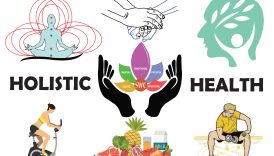Discover the Benefits of Making Positive Lifestyle Changes

Understanding the Importance of Positive Lifestyle Changes
In today’s fast-paced world, it’s easy to fall into habits that can be detrimental to one’s health and well-being. Whether it’s skipping meals, neglecting exercise, or not getting enough sleep, many individuals find themselves in a rut that negatively affects their quality of life. Recognizing the importance of positive lifestyle changes is the first step towards a healthier and more fulfilling existence. Making intentional decisions to adopt a more balanced approach to daily life can lead to transformative results. For example, a friend of mine, Alex, found himself feeling sluggish and unmotivated. After deciding to swap out late-night snacks for healthier options and making a commitment to exercise regularly, he noticed an incredible shift not only in his energy levels but also in his mood and productivity at work.
- Discover the Benefits of Making Positive Lifestyle Changes
- Understanding the Importance of Positive Lifestyle Changes
- How Positive Lifestyle Changes Can Impact Overall Well-being
- Healthy Eating Habits
- Benefits of a Balanced Diet
- Incorporating Nutrient-rich Foods into Your Meals
- Regular Physical Activity
- Importance of Exercise for Physical and Mental Health
- Simple Ways to Stay Active Every Day
- Quality Sleep Routine
- Effects of Sleep on Overall Health
- Tips for Improving Sleep Quality
- Stress Management Techniques
- Identifying Sources of Stress
- Strategies for Coping with Stress Effectively
How Positive Lifestyle Changes Can Impact Overall Well-being
The ripple effects of positive lifestyle changes can significantly enhance one’s overall well-being. These changes can be as simple as opting for a nutritious breakfast, taking the stairs instead of the elevator, or setting aside a few minutes for mindfulness practices each day. The benefits of such adjustments are profound and multifaceted:
- Improved Physical Health: A healthier diet and regular physical activity can lead to weight management, reduced risk of chronic diseases, and enhanced immune function.
- Enhanced Mental Clarity: Individuals often report improved focus and cognitive function when they prioritize health and well-being.
- Elevated Mood: Positive lifestyle changes are linked to reduced symptoms of anxiety and depression, resulting in a more stable and uplifting emotional state.
- Increased Longevity: By adopting healthier habits, individuals not only improve their quality of life but often extend their lifespan as well.
Ultimately, every small step taken towards a healthier lifestyle contributes to a more vibrant, energetic, and fulfilling life. Having personally witnessed the transformation in many individuals, it’s clear that the journey toward well-being is one worth embarking on. With determination and effort, anyone can experience the benefits of these positive changes firsthand.
Healthy Eating Habits
Benefits of a Balanced Diet
Transitioning to healthy eating habits is one of the most impactful changes an individual can make on their journey towards improved well-being. A balanced diet, packed with the right proportion of nutrients, offers numerous benefits that can elevate both physical health and mental clarity. For instance, when Sarah decided to transition from a diet of processed foods to one filled with wholesome options, she wasn’t just looking to lose weight. Over time, she noticed some remarkable changes:
- Increased Energy Levels: A diet rich in whole foods, like fruits, vegetables, lean proteins, and whole grains, helps maintain consistent energy throughout the day, which can combat the midday slump many experience.
- Superior Nutrient Intake: A balanced diet ensures that the body receives essential vitamins and minerals necessary for optimal functioning. This includes:
- Vitamin A for vision and immune function
- Vitamin C for skin health and immune defense
- Calcium for strong bones and teeth
- Weight Management: Eating a balanced diet can help regulate appetite and maintain a healthy weight, as nutrient-rich foods often keep you full longer.
- Improved Mood and Mental Health: Emerging research suggests that certain nutritional patterns can reduce symptoms of anxiety and depression, leading to an overall better mental state.
Incorporating Nutrient-rich Foods into Your Meals
So, how can one effectively incorporate more nutrient-rich foods into their daily meals? Here are some practical strategies to consider:
- Start with Breakfast: Begin your day with a hearty breakfast that includes whole grains, fruits, and proteins. Think oatmeal topped with berries and nuts or a smoothie packed with spinach and a banana.
- Mix Colors on Your Plate: Aim to fill your plate with a variety of colors at every meal. This not only makes your meal visually appealing but also ensures a wide range of nutrients. For example:
- Red: Tomatoes, strawberries
- Green: Spinach, broccoli
- Yellow/Orange: Carrots, bell peppers
- Snack Smartly: Instead of reaching for chips or sugary snacks, consider healthier alternatives like Greek yogurt with honey or sliced vegetables with hummus.
- Meal Prep: Spend some time each week preparing meals in advance. This can lessen the temptation to indulge in unhealthy options when hunger strikes.
With just a few mindful adjustments, anyone can enhance their eating habits to foster a stronger, healthier life. Sarah’s journey illustrates how small, consistent changes can lead to profound benefits, encouraging many to take their first steps towards a balanced diet.
Regular Physical Activity
Importance of Exercise for Physical and Mental Health
Building on the foundation of healthy eating habits, incorporating regular physical activity is equally crucial for achieving optimal well-being. Exercise isn’t just about breaking a sweat; it’s a powerful tool that enhances both physical and mental health. Take John, for instance, who began exercising regularly after a particularly stressful period at work. He discovered that physical activity became an outlet for stress relief, and he noticed remarkable transformations not just in his body but also in his mind. Here are a few significant benefits of regular exercise that John experienced:
- Boosted Physical Fitness: Engaging in regular exercise strengthens the heart, builds muscle, and enhances flexibility, contributing to overall physical fitness and endurance.
- Improved Mental Clarity: Studies have shown that exercise increases blood flow to the brain, which can enhance cognitive function. John found that workouts helped him focus better at work.
- Elevated Mood: Physical activity releases endorphins, often referred to as “feel-good hormones.” After a workout, John always felt a sense of euphoria, which helped manage his anxiety.
- Better Sleep: Regular movement can lead to improved sleep patterns. John, for example, found that exercising during the day made it easier for him to fall asleep at night, leading to more restorative rest.
Simple Ways to Stay Active Every Day
Staying active doesn’t have to equate to grueling workouts at the gym. Here are some simple ways to integrate physical activity into daily routines:
- Take Short Breaks: If you work at a desk, set a timer to stand up and stretch or walk around every hour. Even five minutes of movement can make a difference.
- Walk or Bike Instead of Driving: Whenever possible, opt for walking or biking, whether it’s for a short trip or to run errands. This is a simple way to sneak in exercise while accomplishing daily tasks.
- Join a Class: Look for local classes that interest you, like yoga, dance, or martial arts. This not only provides exercise but also the opportunity to meet new people.
- Incorporate Fun Activities: Engage in fun physical activities that don’t feel like exercise. Dancing at home, playing catch with kids, or hiking with friends can lead to great workouts without the monotony.
- Set Practical Goals: Start with small, achievable goals like walking 10,000 steps a day or participating in an activity for 30 minutes. Gradually increase these goals as you build stamina and confidence.
Ultimately, embracing regular physical activity, much like healthy eating, is a profound step towards better health. John’s journey reflects the powerful impact exercise can have on overall quality of life, motivating others to prioritize movement every day.
Quality Sleep Routine
Effects of Sleep on Overall Health
In the pursuit of a healthier lifestyle, we often prioritize exercise and nutrition, but the importance of quality sleep should not be overlooked. After all, adequate sleep is essential for physical and mental health, serving as the foundation upon which other wellness habits are built. Consider Emily, who, after a few weeks of regular workouts and healthy eating, realized that her sleep patterns were still disorganized. She often felt fatigued and unproductive. Once she focused on improving her sleep, everything changed. Here are some key benefits of quality sleep that Emily discovered:
- Enhanced Cognitive Function: Sleep plays a critical role in memory consolidation and learning. Emily experienced improved focus and better retention of information during the day after she prioritized her sleep.
- Emotional Stability: Lack of sleep can lead to increased irritability and emotional reactivity. By ensuring she got enough rest, Emily noticed a marked improvement in her mood and interactions with others.
- Physical Recovery: Sleep is essential for muscle recovery and overall bodily functions. Athletes and non-athletes alike benefit from restorative sleep, as it aids in healing and repair processes.
- Stronger Immune System: With more sleep, Emily felt less susceptible to common colds and illnesses, as ample rest contributes to a well-functioning immune system.
Tips for Improving Sleep Quality
Recognizing the significance of quality sleep is just the beginning; implementing habits to enhance sleep is crucial. Here are some practical tips that helped Emily transform her sleep routine:
- Create a Consistent Sleep Schedule: Going to bed and waking up at the same time each day helps regulate the body’s internal clock, making it easier to fall asleep and wake up refreshed.
- Limit Screen Time Before Bed: The blue light emitted by phones and computers can hinder melatonin production, making it more difficult to fall asleep. Emily found that reading a book instead of scrolling through her phone helped her wind down.
- Design the Perfect Sleep Environment: Keep the bedroom dark, cool, and quiet. Consider investing in blackout curtains, earplugs, or a white noise machine to create an ideal sleep environment.
- Develop a Relaxation Routine: Engage in calming activities before bed, such as meditation, gentle stretching, or deep breathing exercises. This can help signal the body that it’s time to wind down.
- Be Mindful of Food and Drink: Avoid heavy meals, caffeine, and alcohol close to bedtime. Instead, consider soothing herbal teas to promote relaxation.
By focusing on quality sleep, Emily experienced the ripple effects throughout her daily life, from increased energy levels to enhanced mood. Adopting these practices can help anyone achieve a restful night’s sleep, ultimately leading to better overall health and well-being.
Stress Management Techniques
Identifying Sources of Stress
As we delve deeper into the path of holistic well-being, the role of stress cannot be ignored. Just as Emily found solace in improving her quality of sleep, she realized that understanding the sources of her stress was equally vital. Identifying stressors is the first step towards effective stress management. Stress can come from various aspects of life, and recognizing these triggers is essential to addressing them. For example, Emily discovered that her stress stemmed from multiple sources:
- Work-related Pressure: Tight deadlines and demanding projects often left her feeling overwhelmed and anxious.
- Personal Relationships: Conflicts with friends and family contributed to emotional strain.
- Health Concerns: Worrying about her physical wellness and maintaining a healthy lifestyle added additional pressure.
By taking the time to analyze her daily life, Emily could pinpoint specific stressors. This clarity helped her formulate a plan to tackle them more proactively.
Strategies for Coping with Stress Effectively
Now that the sources of stress are identified, the next step is to implement effective coping strategies. Here are some techniques that significantly aided Emily in managing her stress levels:
- Mindfulness and Meditation: Engaging in mindfulness exercises, such as meditation and deep breathing, helped her calm her racing thoughts. She set aside just a few minutes a day to focus on her breath, promoting relaxation.
- Physical Activity: Emily found that exercise was a great stress reliever. Whether it was a brisk walk in nature or a dance session in her living room, moving her body helped release built-up tension.
- Connect with Others: Talking to friends and family about her feelings provided emotional support. Emily learned that sharing her struggles and experiences made her feel less alone.
- Time Management: Prioritizing tasks and setting realistic goals helped reduce work-related stress. Emily started making to-do lists for her day, allowing her to focus on one task at a time, decreasing overwhelm.
- Engage in Hobbies: Spending time on activities she loved, like painting or gardening, became a much-needed creative outlet for Emily. This shift allowed her to pause, enjoy the moment, and recharge her mental battery.
By adopting these practical strategies, Emily found herself better equipped to handle stressors as they arose. Recognizing and managing stress effectively not only fosters a healthier mindset but also enhances quality of life overall. With a little self-awareness and proactive effort, anyone can pave the way to reduced stress and improved well-being.





